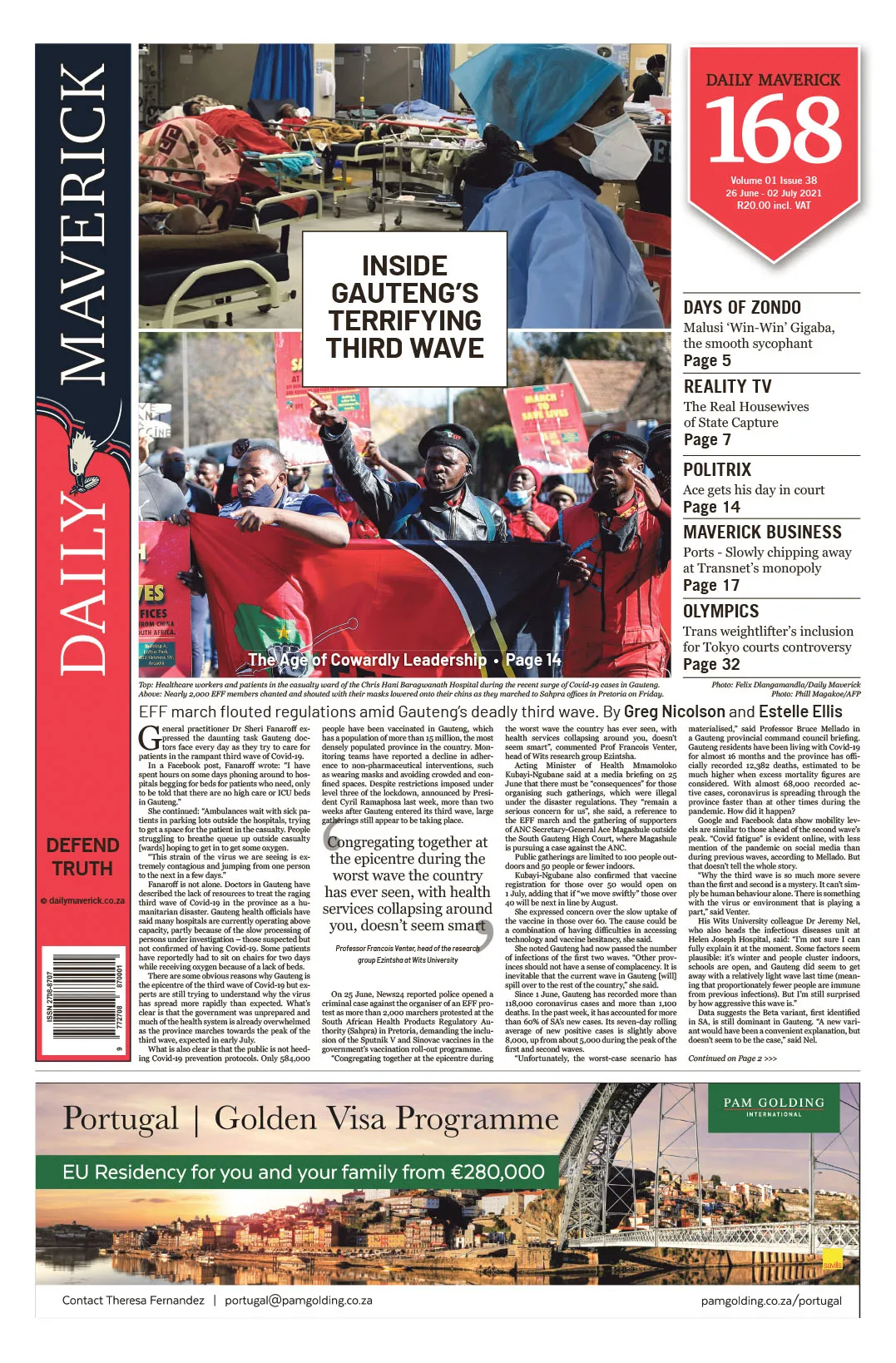First published in the Daily Maverick 168 weekly newspaper.
Parliament is ticking over nicely, despite officially being on a 10-week constituency and municipal electioneering recess. That several committees continue meeting is a sign that the parliamentary calendar is under pressure, even with the quantity-over-quality weekly list of up to 60 three-hour virtual committee meetings.
This past week saw interviews for the National Youth Development Agency (NYDA) board, defunct since May 2020. The previous selection process was scrapped amid threats of court action and widespread disgruntlement about political shenanigans, including the ANC Youth League task team writing to Luthuli House with its own candidates.
It took five months to restart the NYDA board selection interviews, but since February 2021 the process has picked up, with a list of the 1,070 applications and CVs (sans personal details like ID numbers, residential addresses and such), put out for public comment on 18 May 2021. From there 40 candidates were shortlisted. This week the NYDA board hybrid interviews were also streamed on Parliament’s YouTube channel.
In other words, right from get-go these interviews were open, transparent and accountable, with a good dose of public participation, or at least the offer to members of the public to participate. That is the parliamentary standard.
But that norm of openness floundered in the police committee’s interviews for the Critical Infrastructure Council, which regulates what were known in the apartheid era as National Key Points. Perhaps the secrecy so often invoked by securocrats proved infectious to the lawmakers.
The 17 shortlisted candidates’ CVs, obviously without personal information like IDs, residential addresses and such, were not circulated for public comment after names were agreed in April 2021. A committee statement on the eve of the two days of interviews, from 8 June, only included a link to the programme. And no details like current job or highest qualification could be gleaned.
The police committee, which for the first time met in physical reality for these interviews, decided the CVs would be made available only afterwards. The interviews’ audio is available from the Parliamentary Monitoring Group (PMG). And, to be fair, a summary of the shortlisted candidates was released upon request.
But this is not how it typically unfolds in parliamentary interviews for statutory and constitutional appointments. Parliament usually errs on the side of transparency and openness.
This openness and accessibility, alongside facilitating public participation, have been applied consistently to all those posts Parliament has a say in. It doesn’t matter whether that’s the NYDA board, the SABC board, the Independent Communications Authority of South Africa (Icasa) commissioners or the members of all Chapter 9 institutions supporting democracy, like the South African Human Rights Commission, the Electoral Commission of South Africa (IEC) and the Commission for Gender Equality. Or the Auditor-General and Public Protector.
The results have not always been ideal.
In March 2019, the House approved the removal from office of Icasa chairperson Rubben Mohlaloga following his fraud conviction and 20-year jail term, regardless of appeals.
In December 2019, Parliament decided not to restore to the National Prosecuting Authority advocates Nomgcobo Jiba and Lawrence Mrwebi, after the presidential decision to fire both senior prosecution officials for not being fit and proper for office.
Now under way is the inquiry into Public Protector Busisiwe Mkhwebane’s removal from office for misconduct and incompetence. The committee was named this week.
Transparency and openness may not always avoid pitfalls, but without them the checks and balances of SA’s constitutional democracy are out of kilter from the start.
And that’s dangerous when securocrats and restrictions of all types dominate during the Covid-19 lockdown that, on Saturday, hits Day 458. DM168
This story first appeared in our weekly Daily Maverick 168 newspaper which is available for free to Pick n Pay Smart Shoppers at these Pick n Pay stores.

















 Become an Insider
Become an Insider
Comments - Please login in order to comment.